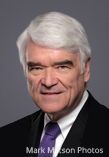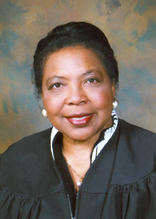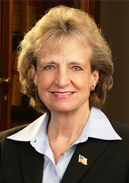© 2018 The Texas Lawbook.
By Natalie Posgate
(April 24) – Though that legal degree on your wall is kind of important in order to practice law, it turns out that everything you need to know about civility in the profession boils down to the ‘Golden Rule’ that you already learned in kindergarten: treat others the way you would want to be treated.
But apparently, there are too many lawyers acting like kindergartners to their opposing counsel, which is precisely why the Texas Supreme Court and Court of Criminal Appeals signed a proclamation in support of observing April 20, 2018 as a “Day of Civility in the Law.”
On Friday, more than 500 people participated in a half-day seminar at the Dallas Bar Association to hear from a multitude of leaders in Texas’s legal community on why practicing civility is important. The Houston Bar Association, Texas Center for Legal Ethics, Trans-Pecos Bar Association, Denton County Bar Association and Rockwall County Bar Association hosted similar events.
Officially, the day’s purpose is to encourage attorneys to reaffirm the Texas Lawyer’s Creed, which says lawyers should always conduct themselves with the utmost courtesy and professionalism toward judges, adversaries, colleagues and everyone else in the legal profession.

“Incivility is a distraction, an avoidance of the merits,” Chief Justice Nathan Hecht of the Supreme Court of Texas said in an opening video played at the seminar in Dallas.
Dallas’ Fifth Court of Appeals Chief Justice Carolyn Wright, the keynote speaker at the DBA’s event, said the first rule of civility taught to her was the Golden Rule, but on the other hand, her mentors didn’t stress basic civility when she entered the legal profession nearly 40 years ago “because it was just expected.”
Back then, “the practice of law focused less on the profession as a business model,” she said. “I was taught your word is your bond. If you went back on your word, you were scandalized.”
She suggested that one of the reasons we now need to observe a day of civility is due to the legal profession evolving from technology, becoming less personal.

“Our texting and phone use has gotten appalling,” she said. “There’s an app for that – it’s called R-E-S-P-E-C-T.”
Quoting Martin Luther King, Jr., Wright said, “When we don’t know each other, it’s a recipe for disaster.” She encouraged lawyers to get to know each other to foster more professionalism in the industry.
The half-day seminar at the DBA also featured several other star-studded panelists who offered words of advice: Texas Supreme Court Justice Eva Guzman, Fifth Court of Appeals Justice Douglas Lang (who greatly contributed to forming the Day of Civility), newly-minted U.S. District Judge Karen Gren Scholer, DBA President Michael Hurst and State Bar of Texas President Tom Vick.

There was also a panel of previous recipients of the DBA/Texas Center for Legal Ethics’ Morris Harrell Professionalism Award: K&L Gates partner Kim Askew, Locke Lord partner Harriet Miers, UNT Law Dean Royal Furgeson and Stacy Conder Allen partner Roy Stacy.
The last panel of the day featured a group of in-house counsel who expressed that civility and professionalism were paramount to which law firms they decide to give repeat business to. That panel included Vistra Energy General Counsel Stephanie Zapata Moore, Trinity Industries GC Theis Rice and Toyota lawyer Sandra Waddell.
Here are some key talking points and words of advice brought up by other panelists:
- Theis Rice: “Great lawyers think they’re pretty good; good lawyers know they’re great.”
- Justice Guzman: All the Texas Supreme Court justices are in the habit of going out to lunch together after the “very heated discussions” necessary to make their decisions in cases. “I find it a good practice,” she said.
- Judge Scholer: “If you want sanctions [for the other side], keep yourself clean for as long as you practice.” She also suggests that any attorney who is being pressured by a client to act unethically or be too aggressive to “come up with an exit plan” to no longer work with that client.
- Roy Stacy: “Sometimes a client is a jerk and wants me to be, and I just refuse. Over experience, the best trial lawyers are the most respectful and they kick your butt doing it. The idea that being a zealous advocate means to be rude and disrespectful is just not realistic.”
- Stephanie Zapata Moore: “I’ve never seen an instance where being uncivil has advanced a case.”
- Harriet Miers told a story from her young lawyer days about the first time she worked on a case in federal court. In the courtroom, her opposing counsel, who was a senior partner at a large law firm, told her “I can’t stand being in this room with you.” She said she didn’t react to it and she was glad she didn’t, because it “wasn’t the end” of their story. They eventually became good friends. “We need to not react when we have behavior like that,” she said.
- Judge Furgeson: “We are the guardians of the law. And that’s done through professionalism and civility.”
- Kim Askew: “If you get a rude email, just don’t go there. Take a breath before you respond to that jerk. Know the rules and run by whether [the behavior] is acceptable by a mentor.”



DBA President Hurst said April 20 is not the permanent date for Day of Civility in Texas, particularly because the hope is that it will expand to a weeklong observance, then a month – and even become a period observed nationwide.
© 2018 The Texas Lawbook. Content of The Texas Lawbook is controlled and protected by specific licensing agreements with our subscribers and under federal copyright laws. Any distribution of this content without the consent of The Texas Lawbook is prohibited.
If you see any inaccuracy in any article in The Texas Lawbook, please contact us. Our goal is content that is 100% true and accurate. Thank you.
